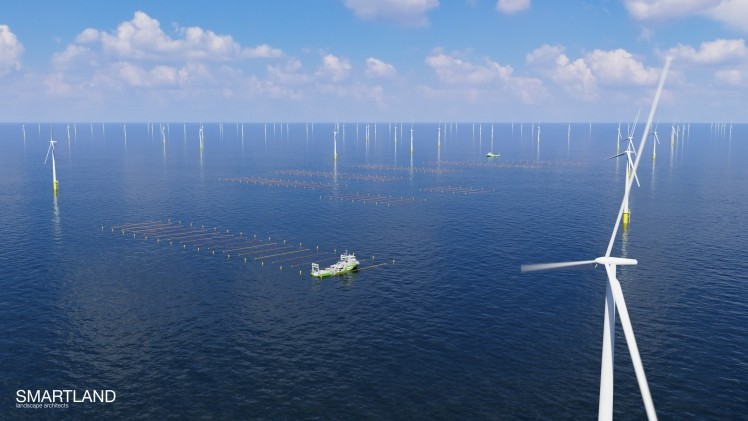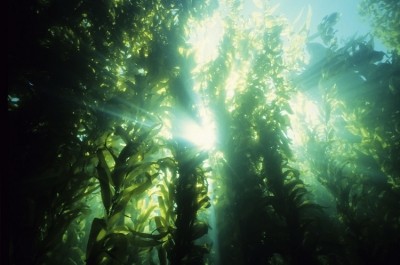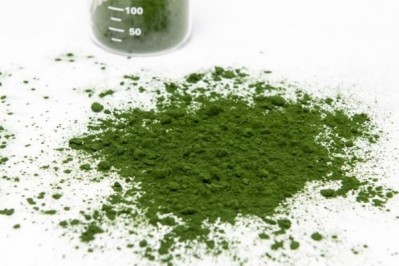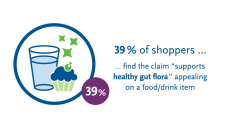Seaweed products in every household? Behind Amazon’s move to shake up Europe’s seaweed market

The food industry has long exploited the gelling, water-retention, emulsifying and other physical properties of hydrocolloids found in seaweed hydrocolloids. But for most end consumers seaweed is still relatively unknown as a daily product. One group looking to change this is the Dutch non-profit North Sea Farmers. It is leading a project testing the viability of commercially growing seaweed in between turbines of offshore wind farms.
The project known as North Sea Farm 1, will be located in a wind farm off the coast of the Netherlands. It has received 1.5 million euros in funding from Amazon.com and will also research the potential of using seaweed for carbon capture.
By locating the farm in previously empty space between turbines, the project claims it can expand seaweed cultivation in the otherwise heavily used North Sea. If seaweed farming were to expand to occupy the entire space occupied by wind farms, expected to be approximately 1 million hectares by 2040, it could reduce millions of tonnes of CO2 annually, the project declares.
The project is managed by a consortium of scientific researchers and partners from the seaweed industry, led by non-profit organisation North Sea Farmers, and is expected to become operational by the end of this year. The consortium hopes that the project will evolve into a blueprint for offshore seaweed farming the world over.
North Sea Farm 1 aims to kickstart innovation in offshore seaweed farming. The grant will provide the investment required to construct a 10-hectare seaweed farm, which is expected to produce at least 6,000kg of fresh seaweed in its first year.
Roeland Donker, Country Manager, Amazon Netherlands, said: "Like trees, as seaweed grows it absorbs carbon from the atmosphere, and it can be used to create biodegradable packaging, as well as food and fashion products. We’re hugely excited to be investing in such an important project off the coast of the Netherlands, which could significantly boost Europe’s seaweed sector.”
"Seaweed could be a key tool in removing carbon dioxide from the atmosphere, yet it’s currently farmed at a relatively small scale in Europe,” added Zak Watts, Director EU Sustainability at Amazon. “We're delighted to fund this project to help us reach a greater understanding of its ability to help fight climate change.”
North Sea Farmers says it has championed the seaweed sector in Europe since 2014.
Seaweed is a versatile crop that can be farmed on large scale in Europe in a sustainable and nature-inclusive way, it contends. It is a local resource that does not need land or fresh water to grow. It can be used for all kinds of daily products such as food, feed, bio-stimulants and biomaterials. Often, these seaweed-based products are a sustainable alternative to an existing fossil-based product. Nevertheless, it remains challenging to reach consumers with these innovative products. But with a growing population that will continue to consume ever more food and plastics, we do need these alternatives, North Sea Farmers contends, sooner rather than later.
Consumers are positively surprised when they hear seaweed can replace plastic packaging or improve the quality and taste of their food, it believes, adding that seaweed innovators already have these solutions, but find it difficult to reach consumers.
Lowering the market barriers for seaweed-based packaging and food products
Assisting this, it hopes, is another announcement from the organisation. It has teamed up with start-up accelerator Brave New Food in the hope of lowering the market barriers for seaweed-based packaging and food products.
The pair have unveiled a Seaweed Innovation Challenge which will invite innovators from all over the world to show their most promising and exciting food and packaging products.
In a live pitch-event the best entrepreneurs will present their seaweed solution to established corporates with large market presence in Europe. All with the aim to start new collaborations that will bring these products to consumers.
In the first stage of the Seaweed Innovation Challenge, seaweed innovators from all over the world can submit their pitch on a dedicated online platform. The four winners will be announced on June 8 jury including retail group Colruyt Group, international packaging company DS Smith.
Iris Menger, market coordinator at North Sea Farmers expects to scout at least 30 high potential innovators and challenge them to pitch their concepts. “We believe in the potential of seaweed, and we know that great new seaweed products are out there. We just need to find a way to bring them to the markets that need these sustainable alternatives. In this challenge we hope to inspire large companies to collaborate with the seaweed industry on this transition. More sustainable, healthier and better products in more households in Europe with seaweed, that’s the aim.”
Speaking with FoodNavigator, Brave New Food’s Program Director, Milo Laureij explained the type of products the collaboration with North Sea Farmers expects to yield.
“We expect to see a variety of food products in categories i.e. vegan seafood alternatives, meat products combined with seaweed, snacks and seaweed as a nutritional or functional ingredient. When it comes to packaging, we expect to find new solutions to single use plastics and packaging materials when looking at for example food packaging, transportation packaging or dry storage packaging.”
He elaborated on why it is important that people eat seaweed. “As we’re growing as a world population, we need more food. Use of land and fresh water for agriculture is becoming scarce on a global scale,” he told us. “When looking at seaweed, it does not need any of these. Besides that, it’s a crop that does not need fertilizer and creates positive impact on the surrounding environment and biodiversity. In addition to that, seaweed is a great crop to include in a healthy and balanced diet. It holds fibres, minerals, proteins, and vitamins that contribute to a healthy lifestyle."
Seaweed can vary in many different tastes and textures, meanwhile. “It has a great umami flavour, sometimes resembling ‘ocean flavours’. Texture fully depends on how you treat it. Fresh, blanched, dried, frozen; there is a high variety. When you use seaweed extracts, it can complement meat flavour and texture and can increase nutritional values because it holds fibres, can function as a healthier alternative for salt and hold vitamins and minerals, all from a highly sustainable crop.”
Seaweed cultivation in Europe is still relatively small scale
But there are plenty of challenges holding back seaweed from being a mainstream ingredient used by the food industry and something people eat as part of their everyday diets.
Seaweed cultivation in Europe is still relatively small scale. This can all improve with more interest and investment in the industry from companies, investors and governments, believes Laureij. “This will help to reduce cost and increase scale in Europe, creating a sustainable local alternative to raw materials we today have to import from far away.”
The complexity of seaweed farming is on the one hand scaling up to a size that makes is economically viable, but at the same time find enough market demand, he continued. “There is still a disbalance demand and supply. This has to do with the fact that seaweed farmers selling their seaweed for higher prices than the market is willing to pay for it. Therefore, economy of scale is necessary. But for a farmer to scale up, he needs a certain assurance that the market will buy his seaweed once they scaled up. This assurance is what we try to establish with a challenge like this: create viable market products that can scale up and therefore secure a demand for the farmers they can rely on.”
It’s not well known yet in Europe or most Western countries so seaweed remains a new product that consumers need to get used to, and they are unaware of the benefits seaweed holds, he added. “Besides that, there are not yet many products out there and the ones that are out there are relatively expensive or maybe not what mainstream consumers expect or want. There are cheaper products that the consumer can reach for.
“We need alternative food products that have an overall better performance (quality, taste, footprint) than the existing less sustainable ones and therefore are worth the extra price. In addition to that, when entrepreneurs get an opportunity to scale-up, the market price can go down as well, creating a more market competitive product. Now this goes even further.
“When there is a higher demand for seaweed coming from market parties, seaweed farmers have a more secure market to supply to, something that also at this point holds farmers back from scaling up their farms, which also translates in a lower price.”

























